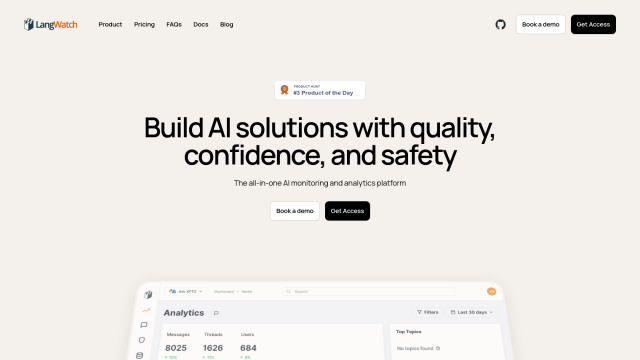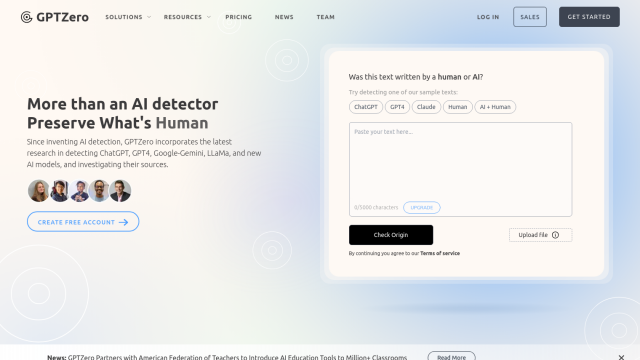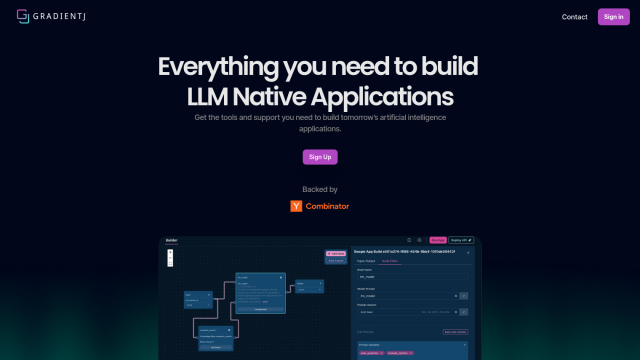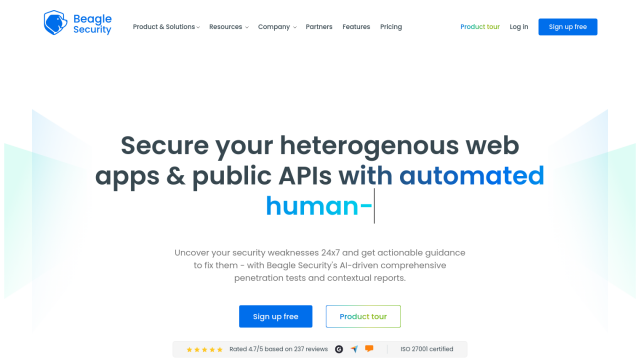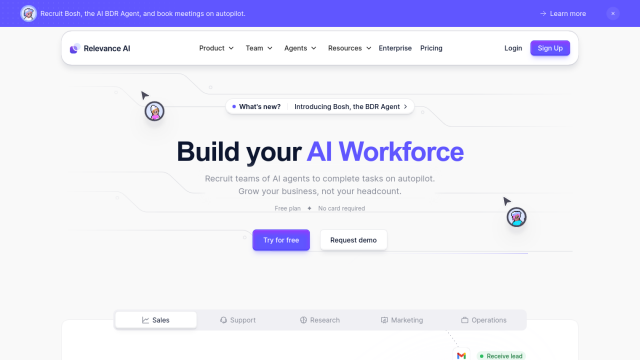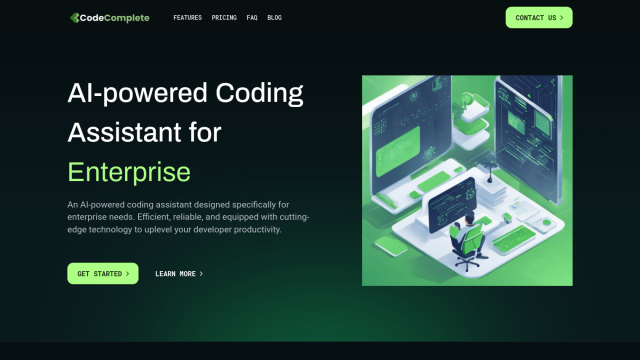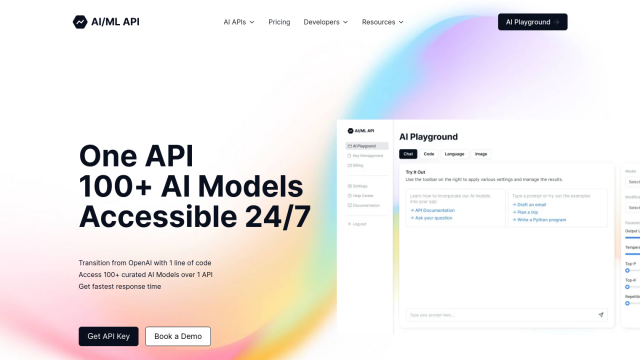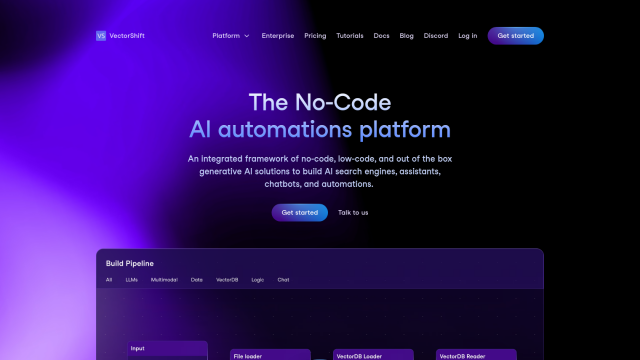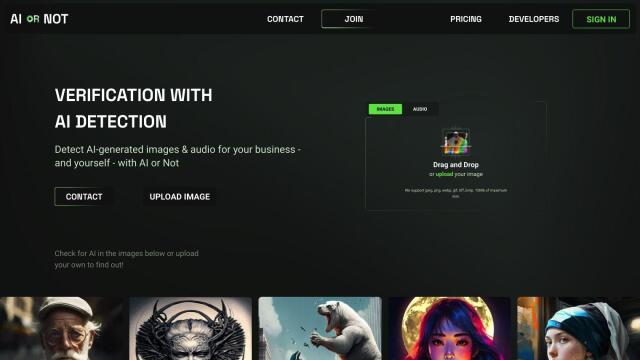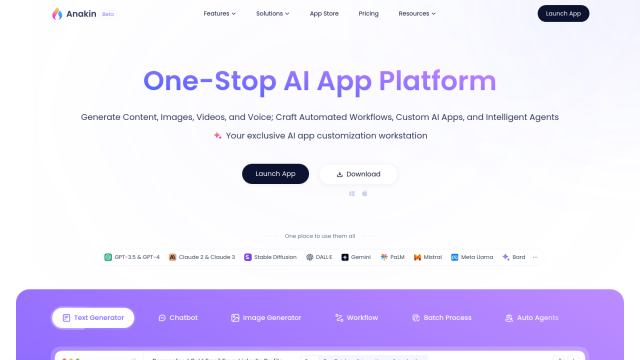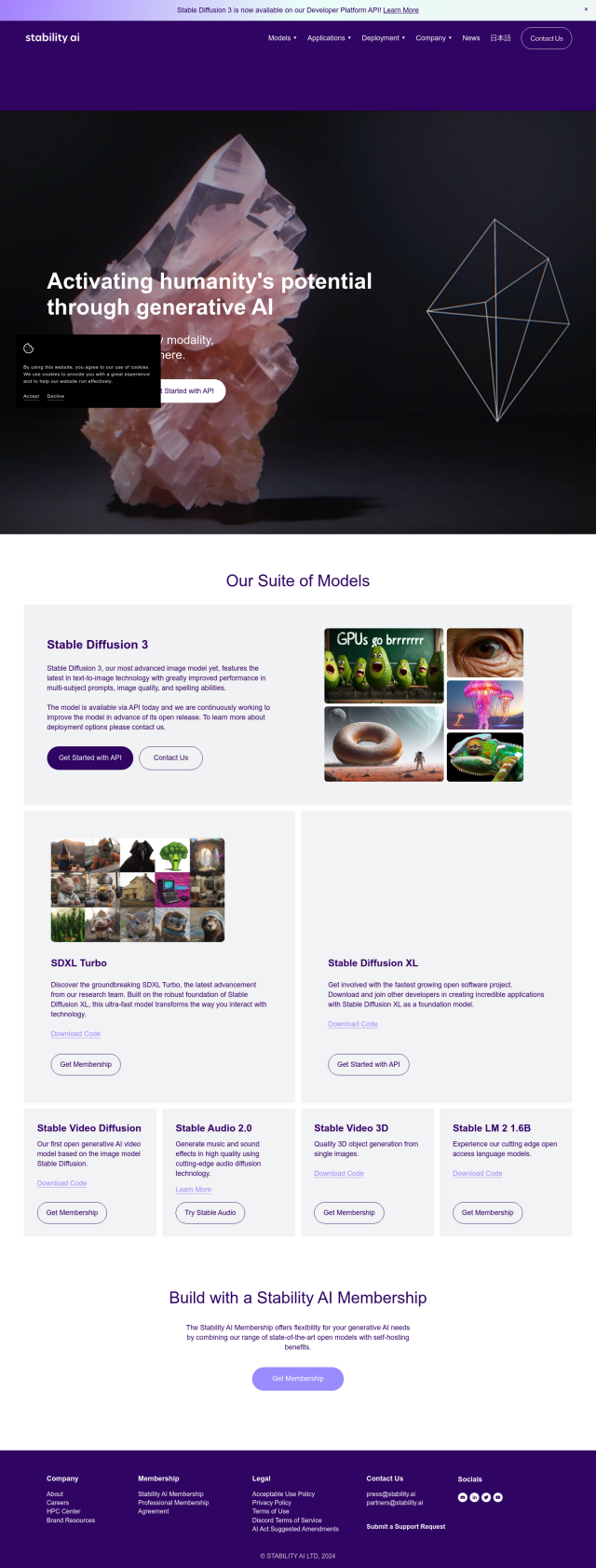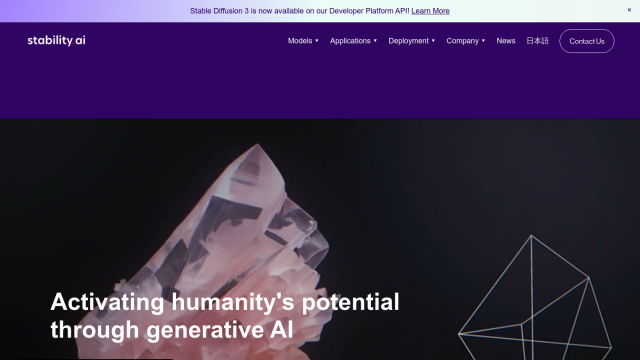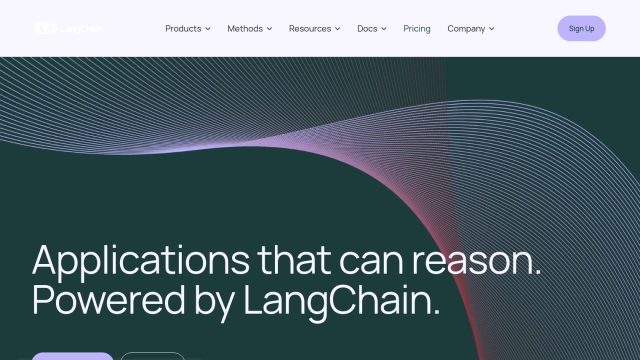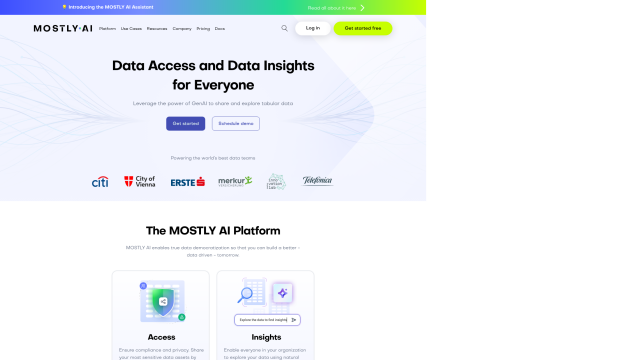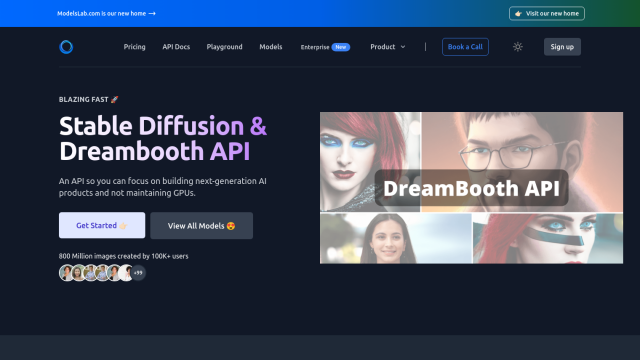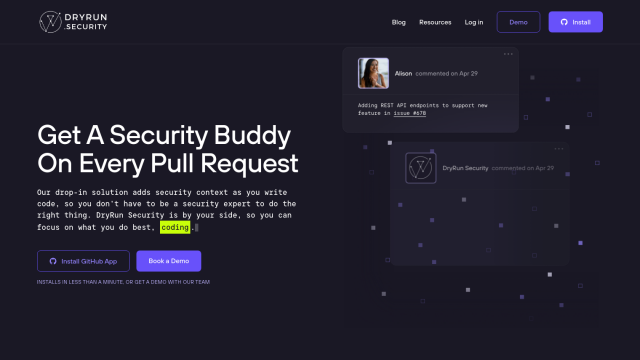
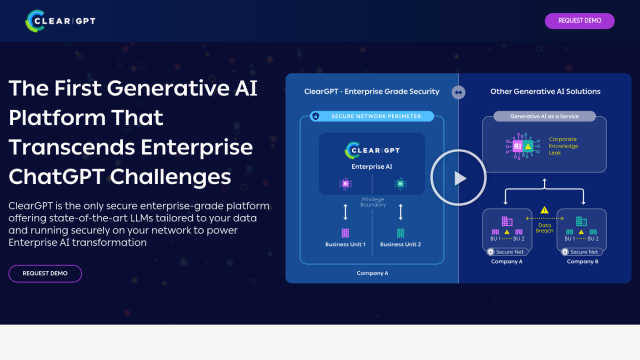
ClearGPT
If you're looking for something to replace LangWatch, ClearGPT is a good candidate. It's an enterprise-focused platform that uses generative AI and Large Language Models to improve security, performance and data governance. ClearGPT doesn't leak data or expose intellectual property, and it's got role-based access controls and a feedback loop to continuously update models. It also fits into existing applications, so it's a good choice for enterprises that want to maintain quality and performance in AI applications.


Abacus.AI
Another contender is Abacus.AI, which lets developers create and run applied AI agents at scale. The platform can be used for a range of AI tasks, including predictive systems and language models. It's designed with high availability, governance and compliance in mind, so it's good for automating complex tasks and making real-time forecasts. Abacus.AI also has built-in model monitoring and explainable AI, which can help businesses and customer service teams better understand the inner workings of AI-powered operations.

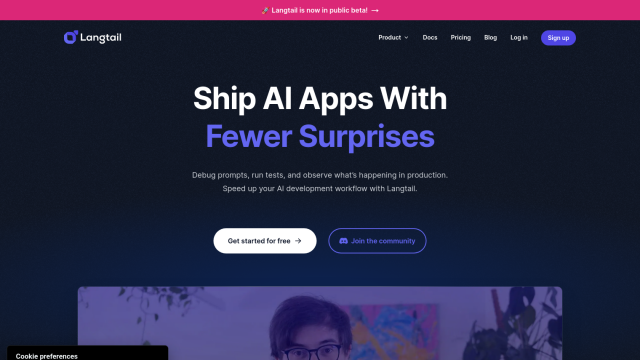
Langtail
Langtail is another contender, geared for building and testing AI-powered applications. It's got tools to fine-tune LLM prompts, deploy them as API endpoints and monitor performance. Langtail's no-code playground and adjustable parameters make it easy to write and run prompts even if you're not a programming whiz. It's designed to improve collaboration and reliability in AI development, so it's a good choice for teams that want to build more useful AI products.

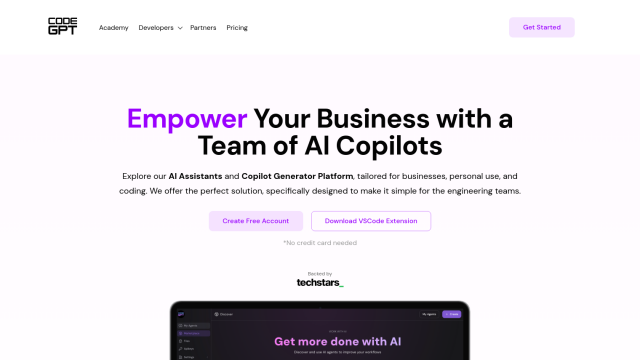
CodeGPT
If you're looking for something more geared to helping you write code, CodeGPT has an AI Copilot designed to help developers write code more efficiently while keeping data out of prying eyes. It works with popular integrated development environment software like VSCode and offers features like code completion, unit testing and screenshot-to-code generation. That makes it a good option for businesses and developers who want to speed up coding without worrying about data privacy.

